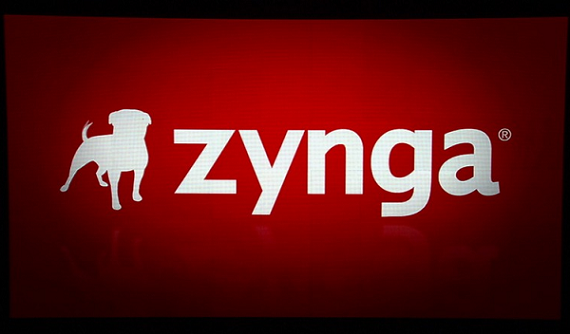

Shares of Zynga fell modestly Monday, as investors stayed mainly on the sidelines ahead of the social gaming company’s fourth-quarter report, which is set to go out after the close Tuesday.
The stock started 2012 trading at $9.45 a share, and fell 3%, to $2.59, in recent trading. That is a drop of around 73% since the beginning of last year.
Analysts expect to see a loss of 3 cents per share on revenue of $212 million. Importantly, analysts and shareholders will be grilling Zynga executives to learn more about whether or not Zynga can leverage its popular Poker game into real money gambling, BTIG analyst Richard Greenfield writes.
“Given the success of Zynga Poker, the company’s longest running game that started life on the PC and has evolved to be a multiplatform success across smartphones and tablets, we wonder if Zynga might be best served by shutting down most of its operations to focus on the casino opportunity including virtual money in the US and real/virtual outside the US.,” Greenfield says.
Since Zynga Poker was the company’s very first game, launched in July 2007, Greenfield speculates that “only a small fraction of the company’s nearly 3,000 global employees work on the game now.” This means that the company could eliminate most of its cost structure since it is still a very large company working on a wide array of games.
“While Farmville 2 still generates healthy profits, none of Zynga’s Ville games such as Farmville 2 have been able to migrate successfully to mobile and Zynga has not been able to create a successful mobile game on its own (Words with Friends and Draw Something were acquired mobile franchises).”
In December, the social gaming company filed paperwork with the state of Nevada, its first step toward getting a gaming license in the state.
By submitting an Application for a Preliminary Finding of Suitability from the Nevada Gaming Control Board, a piece of preliminary paperwork the company needs before officially filing for a gaming license, Zynga started the ball rolling toward being able to legally offer real money gambling games in the United States. It may not happen for a while, though, since the process might take a year to a year and a half to complete.
Zynga Poker is the number one online poker platform in the United States, generating $160 million in revenues in 2011 and $159 million through the first-nine months of 2012 (up 35% from first nine-months of 2011. The pecentage of revenue coming from Zynga Poker has also been climbing, going from 11% in 2011 to 21% by the third quarter of 2012.
“While the reason certainly relates to the failure of other games in ZNGA’s portfolio, Poker has grown at a minimum of 12% q/q for each of the past four quarters ending in Sept. 2012. We project that the game will achieve around $213 mm in revenue in 2012.”
There could be some trouble on the horizon, though. Greenfield is estimating a decline sequentially in Q4 2012 revenues for Poker, whose monetization has “deteriorated meaningfully over the past several months with our aforementioned assumption being that revenues declined sequentially in the December quarter.”
Other analysts are a little more optimistic about Zynga’s other game prospects, including Sterne Agee analyst Arvind Bhatia, who believes that Zynga’s revenue will be in line with guidance, though “GAAP EBITDA will be negatively impacted by restructuring charges.”
“Farmville 2 (released September 2012) seems to have held up well relative to other recent games (though it is down 70% versus Farmville), and could be asource of slight positive surprise going forward,” Bhatia wrote. “Still, we see risk to 2013 guidance given the recent changes (effective March 2013) in business terms between FB and ZNGA.”
Bhatia is referring documents filed with the SEC by Zynga and Facebook in December that loosed the once close relationship between the two companies.
According to the documents, Zynga will no longer be obligated to display Facebook ads, or use Facebook credits in its games on its own platform. Any games offered on its platform, or other platforms, will still have to be offered on Facebook too, though there are some exceptions regarding real-money gambling games, mobile games and games launched in China or Japan.
Facebook will be able to develop its own games, and Zynga’s ability to cross promote between games will be limited by Facebook’s standards of service.
Cross-promotion means putting ads for Zynga in Zynga games on Facebook’s platform. Zynga also will not be able to use e-mail addresses obtained by Facebook to promote its games.
Since Zynga is now just another partner to Facebook, says Bhatia, and is no longer given special status, it will lead to higher acquisition cost per customer for Zynga, which will be reflected in sales and marketing.
Zynga’s previous earnings report
In its Q3 earnings report, Zynga beat expectations, reporting revenue of $317, higher than its expected range of $300 million to $305 million. Revenue was up 3% year-to-year. Bookings came in high, at $256 million, slightly better than the range of $250 million to $255 million that Zynga had been expecting. Bookings were down 11% from the previous year.
The company also predicted that it would be reporting a net loss of between $90 million and $105 million. The actual numbers were a net loss of $52 million, compared to net income of $12.5 million a year before.
Zynga’s stock is currently down 2.63%, trading at $2.59 a share.















